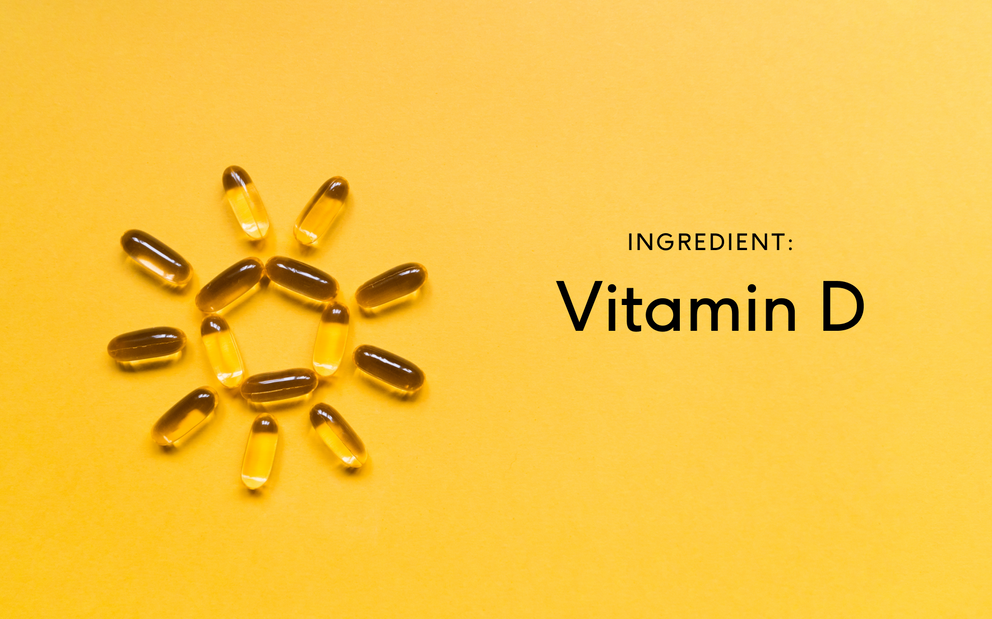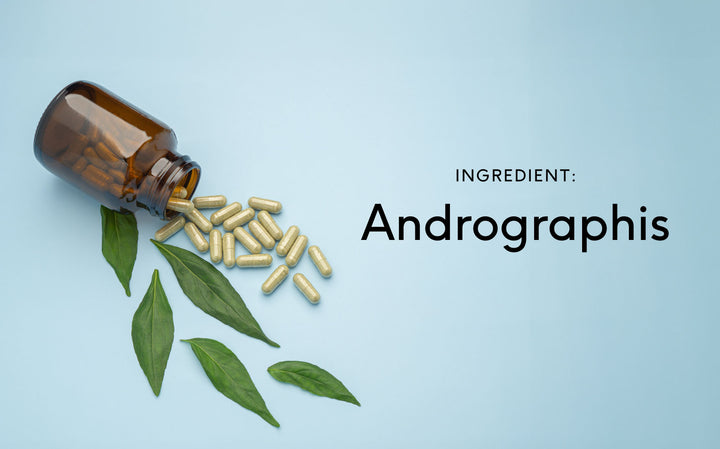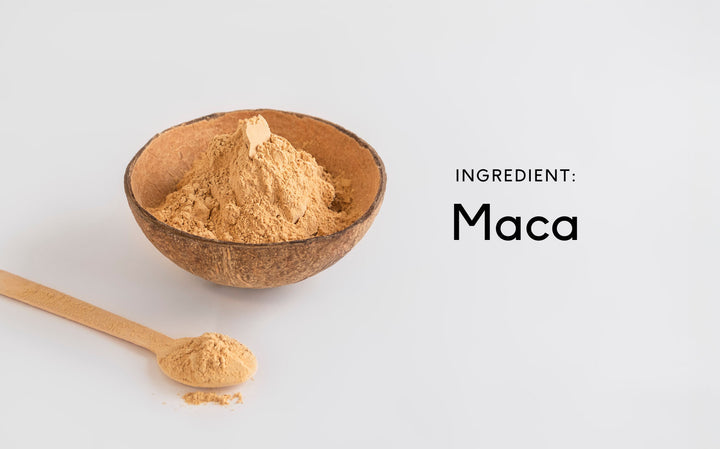Learn About Vitamin D in 5 Minutes
Table of contents

What is vitamin D3?
Vitamin D3, also known as cholecalciferol, is the form of natural vitamin D that is produced when your skin is exposed to sunlight. This essential nutrient’s most important function is its promotion of proper bone density, but vitamin D3 is also involved in cell growth, immune function, and inflammation reduction.
- Helps your body regulate calcium to prevent bone density loss and fractures
- Boosts your immune system to protect you from the flu
- Prevents common childhood illnesses like asthma and dermatitis
- May help you have a healthier and happier pregnancy
- May prevent neurodegenerative conditions, autism, arthritis, and many other conditions
Why we love vitamin D3
We’ve all heard that we should get out in the sun more often to improve our vitamin D levels, but how exactly does this vitamin benefit the body? As we developed Feel, we found that vitamin D had so many benefits that ingesting the daily dose of this nutrient should be mandatory.
For instance, vitamin D appears to improve the density of your bones by helping your body use calcium more efficiently. It also seems to help your immune system work better, which keeps common illnesses at bay and prevents inflammation.
Research suggests that this reduction in inflammation prevents several allergic conditions, and getting the right amount of vitamin D in your diet could even prevent a whole host of dangerous diseases. Since we know that consuming too much vitamin D can be dangerous, we only include the exact amount of this nutrient you need in Feel.Unbelievable benefits of vitamin D3
There’s a scientific consensus that you need to consume plenty of vitamin D3 to be healthy. Here are some of the main reasons why this vitamin is so important:
Bone Benefits
While there’s some degree of controversy swirling around the question of whether vitamin D directly protects you from osteoporosis, it’s clear that this vitamin does improve bone density. As you get older, your bone density naturally decreases, and you become more prone to fractures and other bone-related problems. Consuming your daily dose of vitamin D may reduce your risk of having bone issues when you’re older.
Vitamin D is essential for the maintenance of healthy bones and muscle, which is why we've included 20μg of Vitamin D in Feel Joints, 400% of your daily recommended intake.
Immune Benefits
In one study, children who consumed 1,200 IU of vitamin D per day during the winter were 40 percent less likely to catch influenza than the control group. Overall, vitamin D appears to improve your immunity all across the board, and it may reduce your risk of contracting all sorts of infectious diseases.
Since chronic inflammation is related to an overactive immune system, the immune-balancing effects of vitamin D may reduce inflammation throughout your body. In fact, the scientific community widely accepts that consuming the right amount of vitamin D reduces inflammation even though the exact mechanisms behind this effect remain unknown.
Diabetes Benefits
A longitudinal study found that children who were fed high levels of vitamin D from infancy onward were 88 percent less likely to develop diabetes later in life. These results strongly suggest that proper vitamin D intake is one of the best preventive measures against diabetes.
When you don’t have enough vitamin D in your body, your pancreas may have trouble producing insulin, and your insulin sensitivity may rise. Both conditions lead to diabetes, and they can also make existing diabetes worse.
Anti-Allergy Benefits
Children who don’t get enough vitamin D are more likely to develop allergic conditions like asthma, dermatitis, and eczema. Substances called glucocorticoids help prevent asthma, and vitamin D may strengthen the effects of these anti-inflammatory compounds.
Other Benefits
By boosting your immune system, vitamin D may reduce your risk of developing hypertension, multiple sclerosis, rheumatoid arthritis, autism, and Alzheimer’s disease.
Vitamin D is essential for maintaining healthy bones and muscles. Feel Meal Replacement includes 3μg of Vitamin D, the perfect compliment to your workout.
Is vitamin D3 water-soluble or fat-soluble?
Vitamin D3 is fat-soluble. Therefore, your body takes a while to dissolve and absorb this nutrient, and instead of immediately flushing out, vitamin D3 builds up in your tissues.
Where can vitamin D be found naturally?
Vitamin D is most prevalent in fatty fish and fish liver oils. This nutrient is also available in small concentrations in dairy products, and some species of mushrooms also contain vitamin D. In general, however, animal products and artificially fortified foods and drinks are the only reliable food-based sources of this essential nutrient.
5 foods/drinks containing vitamin D3
1. Cod liver oil 340% DV per 1 tablespoon or 15ml
2. Fortified milk 30% DV per 1 cup
3. Margarine 15% DV per 1 tablespoon
4. Tuna 39% DV per 85g
5. Cheddar cheese 4% DV per 1 cup
What is the recommended daily intake for vitamin D3?
The Office of Dietary Supplements (ODS) has set the recommended daily amount (RDA) of vitamin D at 15mcg for adult men and women. For adults over the age of 70, taking 20mcg of vitamin D per day is recommended.
Feel Pregnancy contains 25μg of Vitamin D3 (as Cholecalciferol from Algae), providing 250% of the recommended daily vitamin D3 intake for women during pregnancy.
What to consume to get a full daily dose of vitamin D3?
Cod liver - approximately 1/3 tablespoon or 5ml
Fortified milk - approximately 3½ cups
Margarine - approximately 7 tablespoons
Tuna - approximately 225g
Cheddar cheese - approximately 25 cups
Can you absorb enough of vitamin D3 from food?
With a daily cod liver oil supplement, it’s easy to get enough vitamin D3 every day. Otherwise, you’ll need to go out of your way to eat seafood to get enough of this substance, and it’s possible that foods fortified with vitamin D may be inferior sources of this nutrient.
Why is vitamin D3 necessary for your body?
Adequate vitamin D3 intake is absolutely essential for maintaining healthy bone density. Without vitamin D, your body is unable to absorb dietary calcium, which results in a reduction in bone density and increased likelihood of sustaining fractures. Vitamin D is also involved in gene expression, and it helps your immune system function properly.
Functions of vitamin D3
Blood calcium maintenance: Calcium is an important component of your blood, and your body can’t absorb this mineral without vitamin D.
Bone mineralization: Your body needs lots of vitamin D to promote proper bone mineralization, which is the process of adding calcium to your bone tissues.
Immune functions: People who get enough vitamin D in their diets are less likely to catch the flu and other common contagious conditions.
Anti-allergy functions: Children who consume enough vitamin D are less at risk of developing allergic conditions like eczema, asthma, and dermatitis.
Symptoms of vitamin D3 deficiency
Hypocalcemic Tetany
This condition occurs when you don’t have enough calcium in your blood. While hypocalcemic tetany only occurs in cases of severe vitamin D deficiency, this condition results in frequent and uncomfortable muscle spasms.
Bone Fracture
Since vitamin D is critical for transferring dietary calcium to your bones, being deficient in this nutrient increases your likelihood of sustaining bone fractures.
Frequent Illness
Vitamin D deficiency inhibits the effectiveness of your immune system, which can result in frequent illness and difficulty healing from infections.
How long do you need to take vitamin D3 to start experiencing its benefits?
Your body takes a long time to absorb and process vitamin D, so the beneficial effects of supplementing with this nutrient can take a while to become apparent. Before vitamin D supplementation can take effect, this substance must be processes by various bodily tissues.
Consistency is key and our research recommends taking your Feel supplements for 3 months to allow your body to adjust and provide the desired benefits.
How long does it take for your body to digest/absorb vitamin D3?
The absorption rate of vitamin D3 varies from person to person. Under ideal circumstances, it’s possible to absorb around 100% of the vitamin D you consume, but certain absorption issues, called “malabsorption complications,” can reduce your ability to absorb vitamin D. As a general rule, vitamin D3 absorption is increased by the presence of fats in your diet.
How long does vitamin D3 stay in your body after you take it?
The vitamin D3 you consume may stay in your body for days, weeks, or even months as your body stores it for future use.
Is vitamin D3 an antioxidant?
The current status of vitamin D3’s antioxidant status is highly controversial. Scientists aren’t entirely sure whether this substance exerts antioxidant activities, but many studies indicate that vitamin D reduces oxidative stress.
Can you overdose on vitamin D3? What are the effects?
Since vitamin D3 is a fat-soluble nutrient, it’s relatively easy to overdose on this vitamin. Signs of moderate vitamin D3 overdose include anorexia, heart arrhythmia, and weight loss. However, this nutrient’s most dangerous overdose symptom is excessive levels of blood calcium, which can cause calcification in your veins, arteries, and heart.
Cardiovascular calcification dramatically increases your risk of stroke, heart attack, and other cardiovascular conditions. You can avoid these conditions by making a point not to exceed your RDA of vitamin D.
Does vitamin D3 dissolve, flush out, or build up in the body?
Vitamin D3 flushes out of your body eventually. However, it builds up in fatty tissues before it is used.
Can you take vitamin D3 during a diet?
Taking vitamin D3 doesn’t interfere with dietary restrictions, in fact, consuming plenty of this vitamin improves overall nutrient absorption.
Are there synthetic forms of vitamin D?
There are quite a few different synthetic forms of vitamin D. Some examples include maxacalcitol, calcipotriol, and dihydrotachysterol.
Why might synthetic forms of vitamin D be better?
Some synthetic forms of vitamin D lack certain detrimental aspects of natural vitamin D. For instance, they might have wider therapeutic windows, lack certain types of carbon, or require less processing by your organs.
Absorption rate of synthetic vitamin D3
One type of synthetic vitamin D, dihydrotachysterol, appears to have a better absorption rate since it’s processed directly in the liver without having to go through the kidneys.
Why might natural forms of vitamin D3 be better?
Due to the different way that your body processes synthetic vitamin D, it might be easier to overdose on synthetic forms of this nutrient.
How to take vitamin D3
You can take vitamin D3 in food, in the form of a liquid cod liver oil supplement, or in a daily multivitamin.
Why everyone should be taking WeAreFeel supplements
There’s been a lot of controversy surrounding vitamin D in recent years. While some skeptics have begun to think that supplementing with vitamin D isn’t necessary, it’s a solid fact that your body needs plenty of vitamin D to maintain proper bone density, blood calcium, and immune resistance.
For many people, getting enough vitamin D from food every day simply isn’t possible. Here at WeAreFeel, we understand that dietary restrictions and busy lifestyles can inadvertently lead to bad nutrition, which is why we include your full RDA of natural vitamin D3 in every capsule of our revolutionary multivitamin. Instead of messing with synthetic vitamin D, messy cod oil, or violating your dietary restrictions, keep up with your daily vitamin D intake with Feel!
Here’s the Proof
- The use of calcium and vitamin D in the management of osteoporosis
- Vitamin D’s Role in Health — Deterministic or Indeterminate?
- High Vitamin D Levels May Down-regulate Inflammation in Patients with Behçet’s Disease
- Vitamin D (Oregon State University)
- Vitamin D in Atopic Dermatitis, Asthma and Allergic Diseases
- The Anti-Inflammatory Effects of Vitamin D in Tumorigenesis




















































 Back
Back





